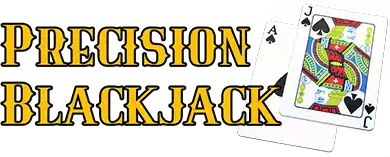How to Double Down Like a Pro: Advanced Blackjack Tactics
How to Double Down Like a Pro: Advanced Blackjack Tactics
The Thrill of Doubling Down
Doubling down in blackjack is one of the most exciting and potentially rewarding moves you can make. It’s a way to turn a strong hand into an even bigger win, doubling your bet and increasing your potential payout with just one additional card. But like many aspects of blackjack, doubling down isn’t just about intuition—it’s about strategy.
Many beginners hesitate to double down because it feels risky, or they’re unsure when it’s the right time to make the move. On the other hand, some players double down too often or at the wrong times, turning what should be an advantage into a costly mistake.
In this article, we’ll explore the strategy behind doubling down, explaining when and why you should make this move to maximize your winnings. By the end, you’ll have the confidence to double down like a pro, knowing that you’re making the smartest possible play.
What Does It Mean to Double Down?
Before diving into the strategy, let’s quickly recap what it means to double down in blackjack.
The Mechanics of Doubling Down
When you double down, you’re doubling your initial bet after the first two cards are dealt. In exchange for doubling your bet, you receive exactly one additional card, and then your turn ends—no more hits, no more decisions. This one card will determine the outcome of your hand.
Doubling down is a powerful move because it allows you to increase your bet when you have a strong chance of winning. But because you only get one additional card, it’s crucial to make this move at the right times to avoid turning a good situation into a bad one.

When to Double Down: The Golden Rules
Doubling down isn’t something you should do on a whim. It’s a calculated move based on specific conditions that give you an edge over the dealer. Here are the key scenarios where doubling down is the right play.
When You Have a Total of 10 or 11
One of the most common and effective times to double down is when your hand totals 10 or 11. Why? Because with a 10 or 11, there’s a strong chance that the next card you receive will be a 10-value card (10, Jack, Queen, King), giving you a total of 20 or 21. These are powerful hands that are likely to beat the dealer.
- Double Down on 10: When your hand totals 10, double down if the dealer’s upcard is 9 or lower.
- Double Down on 11: When your hand totals 11, double down regardless of the dealer’s upcard, as the odds of hitting a 10-value card are high.
When the Dealer Has a Weak Upcard (2-6)
Another prime opportunity to double down is when the dealer’s upcard is weak—typically a 2 through 6. These cards put the dealer at a higher risk of busting, meaning you don’t need a perfect hand to win. If you have a hand that totals 9, 10, or 11, and the dealer shows a weak upcard, doubling down is often the best move.
- Double Down on 9: Double down when your hand totals 9, and the dealer’s upcard is 3 through 6. Avoid doubling down if the dealer shows a 2 or 7 through Ace.
- Double Down on Soft 16-18: If you have a soft hand (a hand that includes an Ace counted as 11), consider doubling down on totals of 16, 17, or 18 when the dealer shows a weak upcard. This move leverages the flexibility of the Ace and increases your chances of improving your hand.
When You’re Playing a Hand with a Soft Total
A soft hand is a hand that includes an Ace counted as 11. The Ace gives you flexibility because if your next card doesn’t improve your hand, you can count the Ace as 1 instead of 11. This makes doubling down on soft hands less risky and more advantageous in certain situations.
- Double Down on Soft 13-18: If you have a soft hand that totals between 13 and 18, and the dealer’s upcard is a 4, 5, or 6, consider doubling down. These are weak cards for the dealer, and doubling down can maximize your potential winnings.

When Not to Double Down: Avoiding Costly Mistakes
Just as there are ideal times to double down, there are also situations where doubling down is a bad idea. Knowing when not to double down is just as important as knowing when to do it.
When the Dealer Has a Strong Upcard (7-Ace)
If the dealer’s upcard is strong—typically a 7 through Ace—doubling down is generally too risky. In these situations, the dealer has a good chance of building a strong hand, so it’s better to play it safe and avoid doubling your bet.
- Avoid Doubling Down on 9-11: If you have a hand that totals 9, 10, or 11, and the dealer’s upcard is a 7 or higher, it’s usually best to just hit or stand rather than doubling down. The dealer’s strong position makes it less likely that doubling down will pay off.
When Your Hand is Weak or High
If your hand is weak (totaling 12 or more but not close to 21) or already high (like 17 or 18), doubling down is generally a bad move. In these cases, the risk of busting or failing to improve your hand is too great to justify doubling your bet.
- Avoid Doubling Down on Hard Totals: Hands like 12, 13, 14, 15, and 16 are particularly tricky. If the dealer has a strong upcard, it’s usually better to stand or hit rather than double down, as the odds are not in your favor.

Practical Tips for Doubling Down Like a Pro
Now that you know when to double down and when to avoid it, here are some additional tips to help you make the most of this powerful move.
Practice Makes Perfect
Doubling down can feel intimidating, especially if you’re new to blackjack or unsure of your strategy. The best way to build confidence is to practice. Use online blackjack games or apps to practice doubling down in different scenarios without risking real money. The more you practice, the more comfortable you’ll become with making this move when it counts.
Stay Calm and Confident
Doubling down can be nerve-wracking because it involves increasing your bet in the middle of a hand. However, it’s important to stay calm and confident. Trust in the strategy you’ve learned, and remember that doubling down is a calculated risk designed to maximize your winnings.
Know the Table Rules
Before you start doubling down, make sure you’re familiar with the specific rules of the blackjack table you’re playing at. Some tables may have restrictions on when you can double down (e.g., only on totals of 10 or 11), so it’s important to know these rules to avoid making mistakes.
Don’t Overuse the Double Down
While doubling down is a powerful move, it’s not something you should do on every hand. Overusing the double down can lead to unnecessary losses, especially if you’re not in the right situations to make the move. Stick to the scenarios outlined in this article, and avoid the temptation to double down just because you’re feeling lucky.
Conclusion: Master the Double Down and Maximize Your Winnings
Doubling down is one of the most exciting and rewarding moves in blackjack, but it’s also one that requires careful consideration and strategy. By understanding when to double down and when to hold back, you can make smarter decisions at the table and increase your chances of walking away a winner.
Remember, the key to doubling down like a pro is to follow the basic principles outlined in this article: double down when you have a strong hand, the dealer is showing a weak upcard, or you’re playing a soft hand that gives you flexibility. Avoid doubling down when the dealer has a strong upcard or when your hand is weak or already high.
With practice, patience, and a solid understanding of when to double down, you’ll be well on your way to mastering this advanced blackjack tactic and boosting your winnings. Good luck, and may your double downs be profitable!

